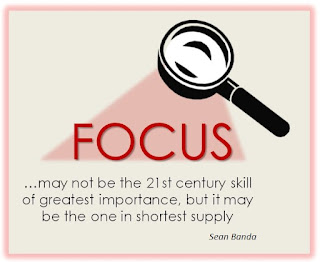Losing oneself in a task can be a great way to enhance focus and productivity. It's a great way to REWIRE your thinking. Here are some tips to help you achieve that state:
Choose a compelling task: Select a task that you find interesting, challenging, or meaningful. When you're engaged in something that aligns with your passions or goals, it becomes easier to become absorbed in it.
Set clear goals: Clearly define the objective or outcome you want to achieve with the task. This provides a sense of direction and purpose, keeping you focused and motivated.
Remove distractions: Minimize potential distractions that can pull your attention away from the task. Put your phone on silent, close unnecessary tabs on your computer, or find a quiet space where interruptions are less likely.
Create a conducive environment: Arrange your workspace or surroundings in a way that supports your concentration. Organize your materials, eliminate clutter, and make sure you have the necessary tools and resources readily available.
Break the task into smaller parts: If the task feels overwhelming, break it down into smaller, manageable steps or milestones. This not only makes it more approachable but also allows you to experience a sense of progress, which can be motivating.
Use a timer or schedule: Set a designated timeframe for working on the task. Using a timer or scheduling specific blocks of time can create a sense of urgency and structure, helping you maintain focus.
Engage your senses: By fully immersing yourself in the task, you can enhance your concentration and involvement. Pay attention to the details, use different senses if relevant, and try to connect emotionally with the activity.
Find your flow: The concept of flow refers to a state of optimal experience where you feel fully and effortlessly immersed in an activity. To achieve flow, seek a balance between the challenge of the task and your skills or abilities. This can lead to a highly engrossing and rewarding experience.
Take breaks when needed: While losing yourself in a task is beneficial, it's important to take breaks when necessary. Taking short breaks between focused work sessions can help prevent burnout and maintain long-term productivity.
Remember, losing yourself in a task requires practice and discipline. By applying these strategies consistently, you can improve your ability to enter a state of deep focus and engagement.



